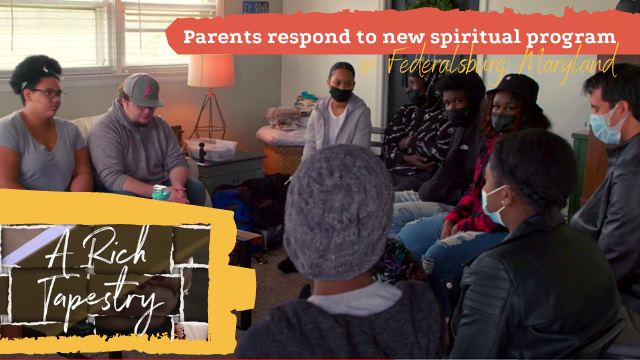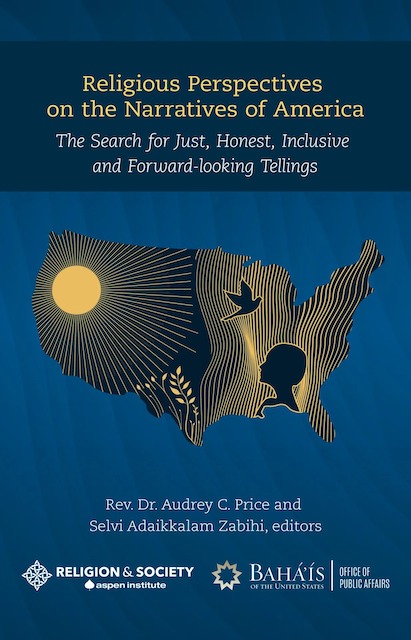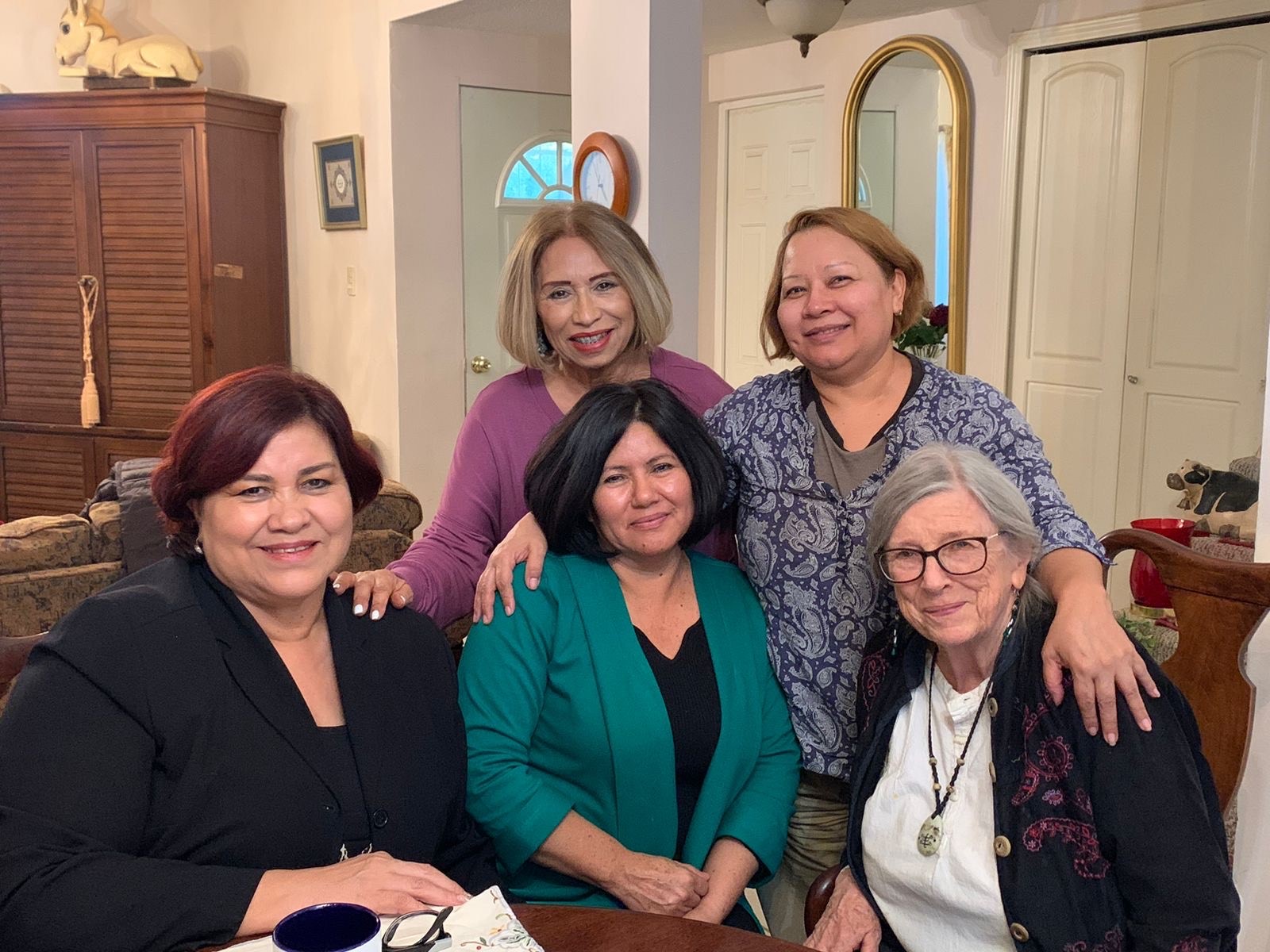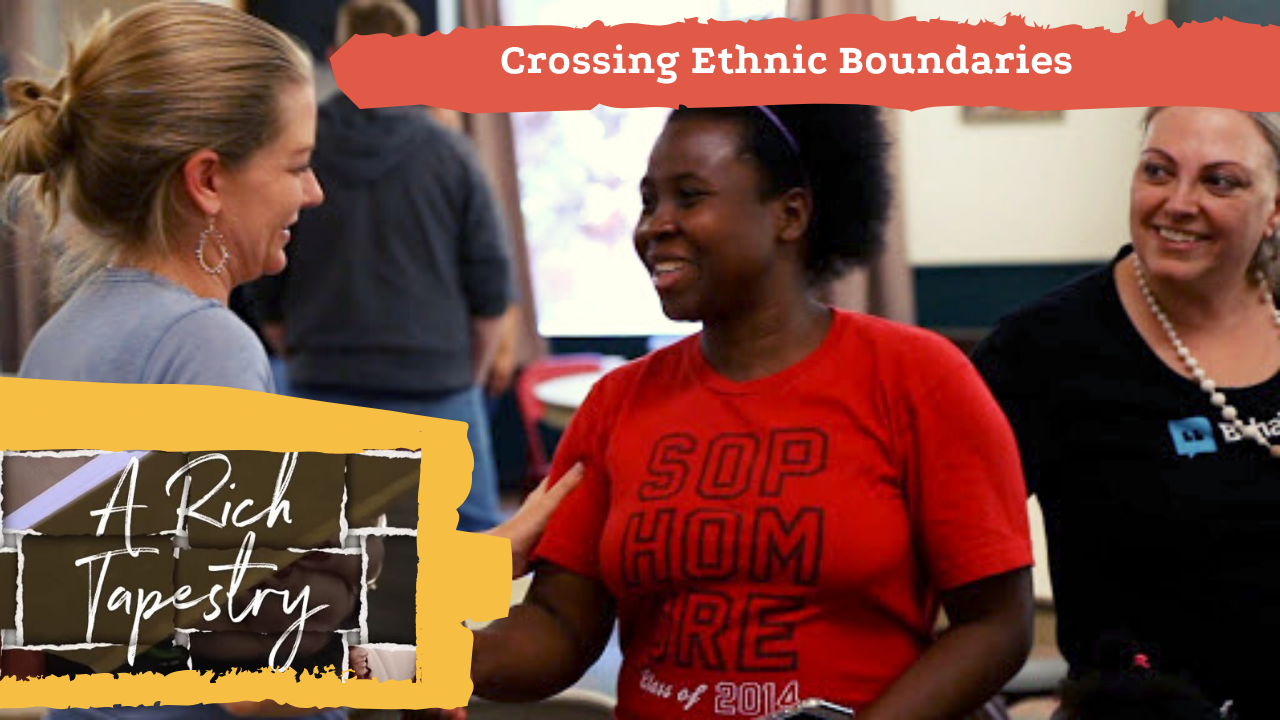
The Power of Story

What if the divisions we see today in America can be understood as the product of stories—deeply ingrained narratives we have collectively accepted that shape how we understand ourselves and each other? What if changing those narratives could reshape the future of our country?
Narratives tell us what’s happening in our world, what’s at stake, and create or expand boundaries around what’s possible. As America approaches its 250th anniversary, narratives of division are dominant: left versus right, urban versus rural, one race against another.
The Narratives of America Project, created by the U.S. Bahá’í Office of Public Affairs (OPA), has a seemingly simple goal: to use narrative to help redefine how Americans see our nation, our communities, and ourselves. The project began as an initiative to engage with the increasing discussion surrounding the narratives of America in the media and other public platforms. The inaugural discussion on this subject took place in August 2022. Since then, the project has included 25 gatherings of different kinds with about 350 participants from the Baha’i community and various organizations in the broader society.
The project explored how narratives could help us overcome division and build shared vision and agency to address the problems we face as a nation. Stories of conflict, winners and losers, and zero-sum thinking may shape our lives. These narratives are deeply embedded in our public discourse, the media’s portrayal of politics, and even our casual conversations about society.
The Narratives of America Project is inviting people to collectively rewrite these stories. The Office of Public Affairs believes that beneath the surface, most Americans share much more in common than current narratives suggest, including values, concerns, and hopes for the future. But those shared interests are obscured by the stories we’ve been telling ourselves, stories that say we are hopelessly divided.
The Narratives of America Project challenges that perspective by posing an accessible yet powerful question: What if we began telling a different story?
Through a series of gatherings and dialogues, the Narratives of America Project brings together a diverse group of participants: religious leaders, scholars, activists, and everyday citizens. The participants are asked to think deeply about the stories we tell ourselves about America and how those stories could change.
This process of collective storytelling is the core of the project. In place of perpetuating a single-faceted narrative that everyone must accept, we can strive to create space for multiple stories to be told – stories that reflect the richness and diversity of American life, as we strive to find the connective tissue between the many stories that make up the life of our nation.
The Narratives of America Project emphasizes that no single group or perspective can claim ownership of the American story. The project’s coordinators assert that any national narrative must emerge from the diverse experiences of its people. The idea of “narrative building” then becomes more than a theoretical exercise; it is a practical tool for social change.
The project took some of its early steps at gatherings co-hosted by the Bahá’í Office of Public Affairs and the Aspen Institute’s Religion and Society Program (RSP). Since 2012, RSP has contributed to collective understanding at the intersection of religion, culture, and justice in public discourse. Its Religion and Society Program focuses on “understanding and sharing how religion can be leveraged to address social inequities and strengthen social cohesion.” RSP convenes scholars, religious leaders, and activists to explore how faith can address these challenges.
Most recently, the two groups have co-published a collection of essays by a diverse group of religious leaders entitled “Religious Perspectives on the Narratives of America.” These essays range from personal reflections on identity and belonging to broader meditations on religion, justice and community. What ties them together is the idea that narratives are not static, they evolve and can be rewritten.That is the key insight driving the project: through sharing their own stories with one another, people begin believing in their ability to collectively reshape the larger story of America.
The coordinators of the Narratives of America Project believe that religious teachings and practices offer a unique set of tools for building social cohesion and promoting justice. Historically, religion has been both a force of division and a source of profound unity and social change. While acknowledging the former, the project leans into the latter, focusing on how religious communities can contribute to a more inclusive and equitable national story.
For this shift in thinking to work, the narrative must evolve through dialogue. The act of sharing various perspectives, exploring how they intersect and enrich our collective identity, increases our capacity to listen to one another. The Narratives of America Project does not seek to impose a new national story from the top down. Instead, it’s creating conditions for that story to emerge from a broadening conversation.
It is a bold vision, quickly growing in complexity . But for the organizers of the Narratives of America Project, learning in action to advance discourse is the point. Surfacing out of popular discourse, these new perspectives provide practical examples of how some spaces are learning to welcome all in an inclusive discourse. Stories are not only reflections of the world as it is—they are blueprints for what it could be.
The Office of Public Affairs invites you to learn more about this project at www.narrativesofamerica.us/ or read the volume of essays published on the Aspen website at https://www.aspeninstitute.org/publications/religious-perspectives/.




